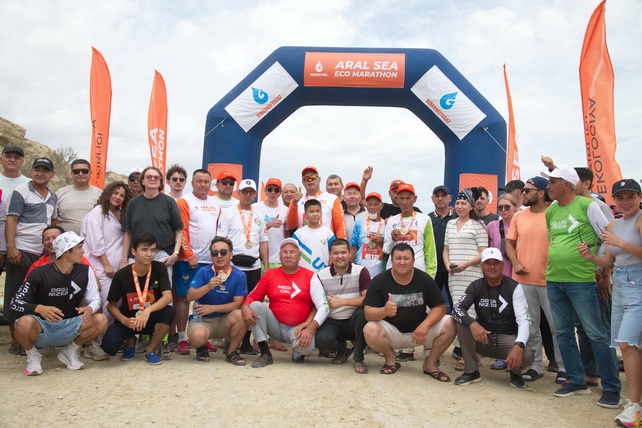
The Aral Sea Becomes the Venue for an Eco-Marathon Merging Sports and Environmental Awareness
The Aral Sea Becomes the Venue for an Eco-Marathon Merging Sports and Environmental Awareness
Tashkent, Uzbekistan (UzDaily.com) — On 22 June 2025, the Aral Sea Eco Marathon took place on the dried seabed of the Aral Sea — one of the most unique sporting and environmental events in Central Asia.
The initiative was spearheaded and organized by the ProRun team, led by its founder, marathon runner, and environmental activist Andrey Kulikov. Held for the second time, the marathon once again drew global attention to the consequences of the Aral Sea’s desiccation — one of the most significant environmental disasters of the 20th century.
The marathon route was laid entirely across the seabed and remnants of the former water body. The event was open to participants of all levels and was timed to coincide with the World Day to Combat Desertification and Drought (June 17). It was dedicated to promoting the sustainable use of water resources, using the Aral Sea tragedy as a stark example.
The event gained special significance thanks to the participation of Erkinbay Kutibaev, Minister of Physical Culture and Sports of Karakalpakstan, a distinguished athlete, five-time world champion in Muay Thai, and a member of the Jokargy Kenes (Parliament). By personally joining the race, he lent his support to the development of the region, the promotion of mass sports, and environmental awareness.
The first marathon at the Aral Sea took place in 2023, when Andrey Kulikov ran a solo 42-km race. In 2024, the route was opened to international participants. By 2025, the marathon attracted around 50 runners from various countries. Participants traveled to the starting point from Nukus in off-road vehicles, stayed in a traditional yurt camp, and took part in the race along a scenic yet challenging route. All finishers received handmade, exclusive medals and personalized photo and video materials.
The Aral Sea was once the world’s fourth-largest inland body of water. Today, in its place lies the Aralkum Desert, a stark result of massive 20th-century irrigation projects. Hosting a marathon in such a setting is both a tribute to lost nature and a powerful symbol of the consequences of irresponsible resource management.
As Andrey Kulikov emphasized: “You only grasp the full scale of the catastrophe by being there in person. We want as many people around the world as possible to learn about this.”
The marathon forms part of broader efforts to support Uzbekistan’s national initiatives for the restoration of the Aral Sea region. As part of these programs, over 1.7 million hectares of forest — including saxaul and other drought-resistant species — have been planted. These forests help stabilize the local climate and reduce dust pollution.
In addition, projects in sustainable agroforestry, irrigation, and plant nursery development are underway, with active involvement from local communities and youth.